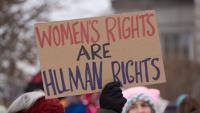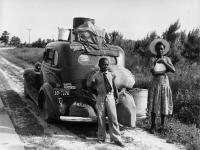South America
Articles tagged with South America
Tag Archive
- (Carlos) Yuri Ceuninck
- ...
- afro-brazilian
- Almada Negreiros
- Ana Maria Mascarenhas
- anti-colonial struggle
- Archives
- arquitetura
- Ateler Mutanba
- audre lorde
- Berlin Biennale
- black artists
- black music
- BLM
- Boubacar Boris Diop
- buenos aires
- Camaroon
- ChoraRita
- colóquio
- comércio
- composer
- contemporary photography
- Cristo do Mundo
- cultural studies
- curatorship
- David Goldblatt
- decolonial studies
- Deleuze
- descolonização
- Desert Travel
- Djam Neguin
- Dombe Grande
- Ella Baker
- escritor
- fleeing
- geological phenomena
- hegemony
- História dos Descobrimentos e da Expansão
- human condition
- humor
- immigrant
- Jacques Rancière
- jazz
- Jeane terra
- jungle
- justiça
- labourers
- language diversity
- Latin American music
- LGBTQI
- língua portuguesa
- linguística
- Luso-Tropicalism
- lusophone
- lusophony
- Marielle
- Middle East
- mil e uma noites
- moçambique
- movements
- mozambican artists
- mpla
- ngorongoro
- Nova Lisboa
- Nuno (Boaventura) Miranda
- opinião
- past
- Pedro Coquenão
- pele
- Pipas Forjaz
- police brutality
- political protests
- practices of resistance
- racism
- reflecting Achille Mbembe
- representation
- representativity
- resentment
- Rio de Janeiro
- Rita GT
- rock art
- Samba
- series
- Sertões
- Sexual Misconduct in Academia: Informing an Ethics of Care in the University
- short filme
- sondagens
- south
- Super Camões Richard Zenith
- technologies
- Terceira Metade
- Third Half
- times square
- transatlantic
- tunisia
- uk drill
- United States
- Visual Cultural
- Vitor belanciano
- Western civilization
 The long history of advocacy around “women’s rights are human rights” features activists from the Global South and women of color in the US. For instance, in 1945, at the founding of the United Nations, Latin American feminists played a critical role in trying to advance “women’s rights” into the category of human rights. And after World War II, when the US Black freedom movement often deployed human rights arguments, Pauli Murray, the attorney, feminist, and civil rights advocate, argued specifically that “women’s rights are a part of human rights.” What changed at the end of the 20th century was that a far-reaching and expanding global feminist movement began to collectively use the idea that “women’s rights are human rights” to advocate for change at the United Nations and beyond.
The long history of advocacy around “women’s rights are human rights” features activists from the Global South and women of color in the US. For instance, in 1945, at the founding of the United Nations, Latin American feminists played a critical role in trying to advance “women’s rights” into the category of human rights. And after World War II, when the US Black freedom movement often deployed human rights arguments, Pauli Murray, the attorney, feminist, and civil rights advocate, argued specifically that “women’s rights are a part of human rights.” What changed at the end of the 20th century was that a far-reaching and expanding global feminist movement began to collectively use the idea that “women’s rights are human rights” to advocate for change at the United Nations and beyond.  And so it was in these places of refuge that Black Lives Matter arose, a largely Northern- and Western-born protest movement against persistent racial discrimination in many forms. It is organic and leaderless like the Great Migration itself, bearing witness to attacks on African-Americans in the unfinished quest for equality. The natural next step in this journey has turned out to be not simply moving to another state or geographic region but moving fully into the mainstream of American life, to be seen in one’s full humanity, to be able to breathe free wherever one lives in America.
And so it was in these places of refuge that Black Lives Matter arose, a largely Northern- and Western-born protest movement against persistent racial discrimination in many forms. It is organic and leaderless like the Great Migration itself, bearing witness to attacks on African-Americans in the unfinished quest for equality. The natural next step in this journey has turned out to be not simply moving to another state or geographic region but moving fully into the mainstream of American life, to be seen in one’s full humanity, to be able to breathe free wherever one lives in America. 